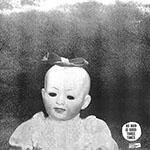
Ty Segall Emotional Mugger
(Drag City)
Years from now, if art can still enrich the soul, if music lovers still congregate under common roofs to enjoy live shows, and if human beings can still write coherent sentences, it should be acknowledged by whichever self-appointed pop scribes who blast their grievances via endless online avenues that Ty Segall was not only a significant presence during a period of supposed “non-rock/non-guitar” prevalence in our teenage millennium, but that he was also a moment in time. While continually producing a solid and extensive body of work, somehow meeting a degree of quality unparalleled by many performers with less music to consider, he’s pushed old sounds into new places or applied his signature to multiple rock n’ roll subgenres. With what is technically his eighth solo outing, Segall’s Emotional Mugger deviates from the pop-n-hook of 2014’s excellent Manipulator, buzzing with odd garage mechanics and flamboyant glitz.
While Segall’s work still owes much to 1960s-era psychedelia, that apparently magical time and place whose vibrant spectrum shone colorfully atop every aspiring kid with a guitar and an acid-baked dream, Emotional Mugger brings a touch of Beefheart and Bolan to the San Fran-sized buzz that remains essential to his work, his relatively slick and heavily characterized narratives applied to stranger and more jagged structural and instrumental decisions. The introductory Squealer immediately speaks to this, its body chopped into sharp fragments which are glued together with whirring synth and soloing. Emotional Mugger/Leopard Priestess is minimalist synth pulp, its key melody calculatedly supplanted by tonal accents and a flurry of guitar notes by its second act. Baby Big Man (I Want a Mommy)’s weird and wired fluctuating haze evokes the electro-psych vision of Silver Apples. And as if channeling The Magic Band, Breakfast Eggs and Mandy Cream work in modern day electronic blues modes with bouncy syncopation. EEEEE-LEC-TRISSSS-I-TEEEEEEEE…
Throughout Emotional Mugger’s 39-minute runtime, Segall is comfortably out of step, abandoning the pop refinement of Manipulator to creative self-sabotage with some of the more album’s more electrified moments, which, while highlights, don’t constitute the bulk of the album. With California Hills, for instance, Segall updates the glossy hard rock jaunts David Bowie explored in The Man Who Sold the World, adding abrupt and momentary rushes of loose melody. Shades of T. Rex find gravity with the seductive sway of Squealer Two and, for Candy Sam, chunks of low end are burned through by Segall’s serrated guitar sound. The heavy wall of strummed tone that powers Diversion is overtly repetitious, though accented at points by wandering synth noises.
For W.U.O.T.W.S., Segall collects portions of his other songs, collaging them together into 3 minutes of discordance. It’s filler — the Revolution #9 moment that doesn’t quite add anything to the album in spite of Segall’s otherwise rewarding willingness to experiment.
Closing out the album is the slow and spare The Magazine, a continual throb of low end giving reason enough for two hands to clap-a-long. The song isn’t bad, but lackluster and not the most memorable way to finish up what I would consider to be another successful release from Segall, who has yet to truly disappoint.
1 February, 2016 - 04:52 — Sean Caldwell